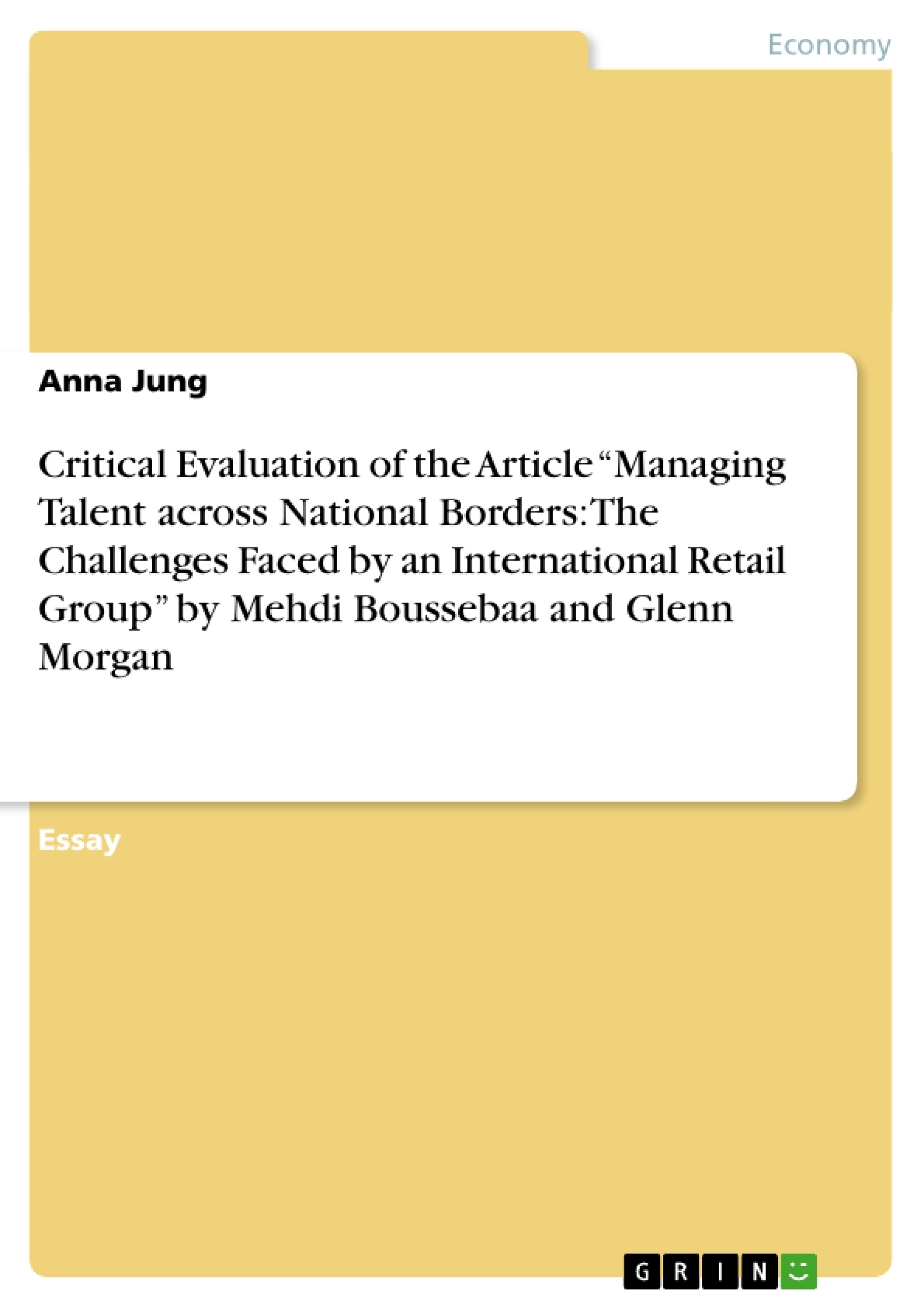Increasing globalisation offers a wide range of opportunities for businesses operating in an international market, and managers are required more than ever before to work with individuals from different countries (Sparrow et al., 2004). However, in order to manage effectively across national borders and to prevent misunderstandings or conflicts, it is imperative for international managers to understand the complex differences between countries and their implications for business. Against this background, it is particularly worthwhile to scrutinise existing research concerned with the current challenges faced by multinational corporations (MNCs) more closely. Accordingly, the aim of the present essay is to critically evaluate the research paper “Managing talent across national borders: the challenges faced by an international retail group” by Mehdi Boussebaa and Glenn Morgan (2008) and to provide implications for theory and practice in cross-cultural management.
First of all, to set the stage for the article analysis, a brief overview of the paper will be provided. Subsequently, theoretical frameworks used in the article will be presented and evaluated. This is followed by a critical evaluation of the appropriateness of the chosen study design and methodology for the research questions posed by the authors. Further, the findings and conclusions of the undertaken study will be outlined and discussed, and afterwards, based on the critical analysis of the paper in the previous sections, the implications for individuals involved in cross-cultural management will be presented. Finally, the essay will conclude that the reviewed research paper, despite some flaws, is an interesting piece of work that makes a contribution to the existing research on international management.
Critical Evaluation of the Article “Managing Talent across National Borders: The Challenges Faced by an International Retail Group” by Mehdi Boussebaa and Glenn Morgan

Essay , 2014 , 11 Pages , Grade: 1,3 (76)
Autor:in: Anna Jung (Author)
Business economics - Business Management, Corporate Governance
Excerpt & Details Look inside the ebook

